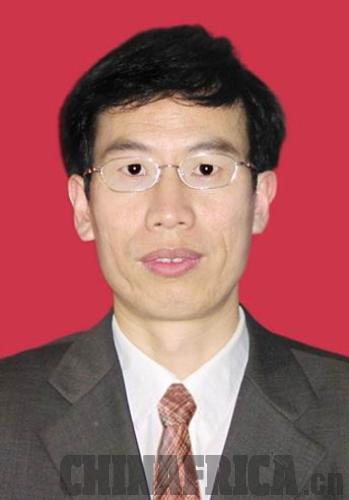|
|

|
|
Zhang Zhongxiang, Deputy Director of the African Studies Center at Shanghai Normal University |
Since its establishment in 2002, the influence of the African Union (AU) has grown. It is now leading the integration and joint development of African countries. In the meantime, the China-AU relationship is continuing to develop from its basis of a tradition of cooperation and friendship between China and the Organization of African Unity (OAU), the predecessor of the AU.
Cooperation between China and the AU made significant progress in 2012. In January 2012, the AU Conference Center and Office Complex in Addis Ababa, Ethiopia--constructed with China's help - officially opened just in time for the 18th AU Summit. Jia Qinglin, then Chairman of the National Committee of the Chinese People's Political Consultative Conference, attended the inauguration of the new AU headquarters and described it as a gift from the Chinese Government and people, and a symbol of the growing China-Africa relationship. The AU headquarters project, which was announced by then President Hu Jintao at the Beijing Summit of the Forum on China-Africa Cooperation (FOCAC) in 2006, is one of the eight measures taken by the Chinese Government to strengthen cooperation with Africa. During Jia's January 2012 visit to Africa, China announced it would provide a total of 600 million yuan ($96 million) in aid to the AU in the following three years. Prior to that, China had made annual donations of $1 million to the AU.
One of the goals of the Fifth FOCAC Ministerial Conference held in Beijing in July 2012, which the AU attended as a full member, was to strengthen cooperation on African peace and security between China and the AU. The action plan adopted at the conference determined that China will launch the Initiative on China-Africa Cooperative Partnership for Peace and Security, provide financial support for AU peacekeeping missions in Africa and the development of the African Standby Force, and train more AU peacekeepers and officials in peace and security affairs.
The AU has had notable success in promoting African security. It has intervened in member countries facing major crises mandatory. If member countries become the scene of war crimes, genocide or large-scale humanitarian crises, the AU reserves the right to intervene in accordance with AU Assembly resolutions.
The AU has also played an increasingly prominent role in promoting African economic development and integration. With the advancement of economic globalization, the biggest task for African countries is to develop economically and improve people's livelihoods. In the past 10 years, Africa's average annual economic growth reached 5 percent, making its growth rate second only to that of Asia. And after witnessing China's meteoric rise, some African countries have recently adopted a "look east" strategy. In her report to the AU Summit on January 27 of this year, AU Commission Chairperson Nkosazana Dlamini-Zuma expressed the hope that African countries can accelerate their own development by learning from China. These developments have made the international community come to see Africa's future as an AU-driven renaissance.
Since the beginning of the 21st century, China-Africa relations have developed at a rapid pace. Promoted by the FOCAC, the two sides have established a new type of strategic partnership. China has become Africa's largest trade partner. As a regional cooperation organization, the AU has the ability to reflect the common aspirations of African countries. Strengthening cooperation with the AU will help China promote both multilateral and bilateral diplomacy with African countries.
In the years ahead, China will continue to deepen cooperation with the AU in multiple fields and support the integration of Africa as a key part of Africa's impending renaissance. |